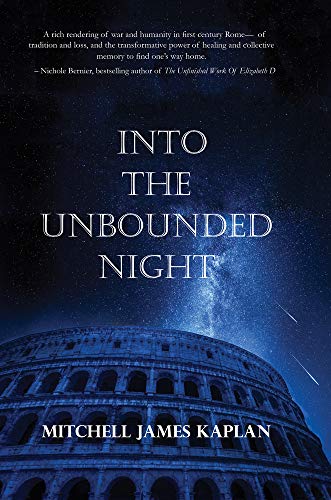Into the Unbounded Night
Rome is falling from the edges inward and from the core out. The moral lessons for our own time of a falling empire are not lost on the reader, down to a gold-painted Nero who fiddles while the capital burns. So much for the plot, which is mostly our characters reacting as meaningless devastation hits their various homes. A story for our times.
For much of this reading, I found the multiple point-of-view characters sketchily drawn and hastily abandoned, a hindrance to enjoyment. We have Aislin from one corner of the empire—Albion—and Yohanan from the other—Judea. And Vespasian and a Septimus who seems more of a mule to carry Aislin closer to where she has to end up in Galilee with little purpose of her own. Josephus the historian is dragged in there, too. I would have liked a lot more about him. If I missed one or two characters, it’s because it was easy to do without the grappling hooks of character and purpose.
I wanted to see more fleshing out, more arc. We even have a disembodied spirit living in the desert, a brief first-person “I,” which is interesting—but the other characters seemed no more substantial. We are told too much, not shown, and pivotal events not prepared with anticipation, attempts to thwart them again adding to the aimless feeling.
All of this I finally found worth the struggle in a final chapter when Yohanan and the refugees discuss what the new Judean world will look like with the Temple in Jerusalem gone. “If we are to survive, perhaps we must never be too sure of anything.” That I found compelling, with the first purpose of the book. If only that lack of sureness could have been made clear as a purpose before.










